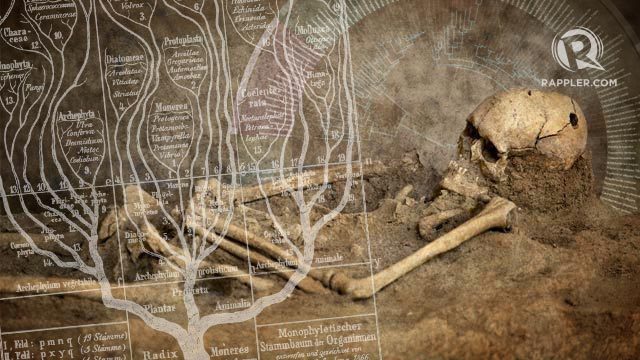SUMMARY
This is AI generated summarization, which may have errors. For context, always refer to the full article.

What if you found yourself caught in a closet with mostly stuffed extinct species? I was, many years ago in the collections of a natural history museum in Leiden in The Netherlands. There were all kinds and all sizes of those animals in the room I was in and they were arranged next to each other in multi-height shelves just like books are in libraries. They were mostly from European expeditions. It could have been a great backdrop to a horror scene but what I felt then was a kind of creeping sorrow. These were residues of lives gone by – of marshes, forests and savannahs that are no more. It was like I visited a planet, my planet, that died a long time ago.
This kind of death did not happen in a day like in some kind of Armageddon. We humans are so skilled at “softly” killing other lives that are non-humans just because we can and their families and friends don’t protest on the streets in numbers when we do. But since those expeditions in the 16th century, we have gone from “killing softly” to fast and brutal decimation of beings that do not call themselves homo sapien or wise beings.
In fact, we have accelerated the deaths of so many other lives in the planet who were here before human ancestors even appeared in the scene 3 million years ago. If you were already living and breathing between 1970 and 2012, you have experienced, consciously or not, so many deaths because we humans have managed to bring down 58% of all mammals, fish, bird, amphibian and reptilian species populations. That is like saying you have killed off over half your side of your own family – in terms of how all animals, including humans, are connected in the tree of life!
The 2016 Living Planet Report of the World Wildlife Fund makes this case clear for all of us. It portrays the scene for life in the Anthropocene Age – the era where humans are the ones decidedly making the calls to alter the planet and all the lives in it to serve mainly one species: humans. This when we barely account for 1% of all the known species on the planet. If you want one graphic to send this truth home into your core, look at this graphic.
The report, based on solid, grounded scientific studies, stated that the main cause of population decline is that we have decimated and degraded the natural homes of these species that they just had no other choice but to die. They have been losing their natural homes because humans have taken them over for their agriculture, mining, fisheries and other development activities. We have been so skilled at taking over and consuming the planet mainly to serve the hungry human that at the current consumption rate, the Living Planet Report estimated that we need 1.6 Earths to keep up. And as you know, our planet has so far not given birth to another so we are devouring our own home.
So in a tragic irony, just when we thought we humans had taken them over for our own good, the effects come back to haunt us because we are only one string in the web of this living planet! So even if you were climate change denier or someone who thinks humans have absolute dominion over all other life forms to serve human needs or just plain old selfish, you are not exempted from the effects of a degrading planet. It is like gravity – you are not exempted just because you can’t do Einstein’s or Newton’s equations.
Oh, but wait, there is more tragedy looming in the horizon. Predictions say that if we go on this way, the percentage of deaths would be 67% by 2020. Death would be the fastest growing phenomenon in the greatest show on Earth we call life. The thought of this kind of accelerated deaths in staggering varieties of life in this planet frightens me. It also makes me mourn in a way that is both different and the same when I mourn a human when he or she passes on.
“Different” because other animals look and behave in ways that are strange to me, and for the most part, they don’t seem to really consciously care about me. But the “same”, because like families and friends, they form part of a world, a labyrinth of my own little story-journey, in the larger course of life on this planet. “Different” or the “same”, their death and extinction is not an academic matter or a figure in a report. So in a writer’s way, I bury them my own way inspired by familiar poetry.
How do I bury thee? Let me count the ways.
I bury thee whether you thrived in the
depth and breadth and height
If my soul can reach you, as you depart from earthly sight
To the ends of life cycles, unsure to call it ideal grace.
I bury thee as you were sacrificed to the level of our every day’s
Most frenzied need, by coal and city-light.
I bury thee regretfully, amidst human strife.
I bury thee purely, as you forego our praise.
I bury thee with sorrowful passion once put to use
In old ancient reefs, and my now eroded childhood’s faith.
I bury thee with a love I seemed to lose
When we lost our restraints. I bury thee with the breath,
cries, fearing for all our remaining lives; and, if I can choose,
I shall bury nay or less of thee after your deaths.
Extinction is personal. – Rappler.com
Add a comment
How does this make you feel?
There are no comments yet. Add your comment to start the conversation.